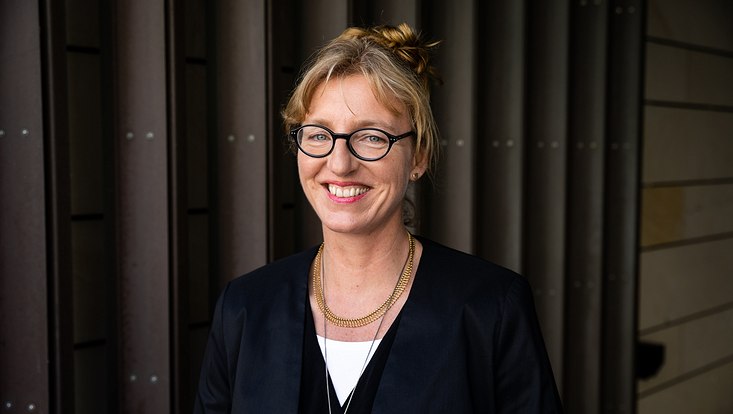Interview about study on adult and further education worldwide“Also in Germany, Adult and Further Education Needs to Improve.”
15 June 2023, by Bente Gießelmann

Photo: Universität Hamburg / Ohme
The research project Study on Adult Learning and Education examined the status of adult and further education in 8 countries. We interviewed Prof. Dr. Anke Grotlüschen about the challenges of the sector and its role in political discourse.
Prof. Grotlüschen, in a 2022 study on the state of adult and further education in 8 countries worldwide, you examine framework conditions and challenges. Why are these findings important?
There is a concern that adult and further education has been rendered rather invisible since the discussion on the sustainable development goals, in which “lifelong learning” is sometimes understood to mean school. That was not actually the case in the EU’s memorandum on lifelong learning, which was published a good 20 years ago. And now, we want to know whether this has negative consequences.
What are the key findings?
Financially, it is more or less irrelevant what it is called: adult and further education is always the stepchild when it comes to funding anywhere. We also learned that adult and further education associations play an enormously important role—for example, they prepare continuing education strategies. Such associations also look for contact partners, introduce research findings to debates, and bring together the needs of education providers.
However, if things need to happen quickly, there is no waiting for the normal political process—adult and further education is organized very quickly. In Ukraine, for example, first-aid courses were rolled out immediately. In Thailand, they switch to silk production when fertile land is rendered nonarable by climate catastrophes.
What role does adult and further education play in the societal and political discourses in the countries studied?
Some countries in the study had right-wing populist governments at the time of the survey. That is where adult and further education is important for maintaining critical standpoints. Most often, it is precisely there that it is severely curtailed. This therefore reveals that autocrats adjudge it to play an important role in democracy.
Adult and further education often takes place in less formalized, bottom-up contexts. Do you have a concrete example of this from your survey?
Good question! Yes, what impressed me was the activism in South Africa, where there was an immediate transition to informal learning stemming from the food shortages during the lockdowns: people taught each other via Messenger video calls how to grow filling foods and prepare them for soup kitchens. This has spread massively.
I was also impressed by the men’s shed movement, which are sheds located behind gymnasiums where older men build and repair things while their wives exercise inside. In Australia, this movement is helping to repair the damage after bushfires, droughts, and floods.
Similarly, illiterate Indian women have depicted their experiences of sexual assault in drawings on the 6 meters of fabric used to make a sari, delivered them to the deputy mayor in Delhi, and secured the creation of a complaints offices for women who work unprotected in the informal sector. Such examples are enormously encouraging and empowering.
In your opinion, adult and further education is very much underrepresented in the discourse on education policy compared to school education. Why is that? And what should it provide in a society based on lifelong learning?
It is because school education wins or loses elections, which is why school and childcare policy is always top of the agenda. But if you are not thinking about reelection first, you need to expand adult and further education so that it not only explains plug-in solar power plant construction but also hosts postfossil leadership training. The positions must be equal to school-based teaching positions; otherwise, we will continue to lose our staff in the teacher shortage.
In the study, you provide a summary of recommendations for policymakers and practitioners. Which of these are relevant and valuable for adult and further education in Germany? Are there best practices from other countries?
We should also make it clear that adult and further education is the core component of lifelong learning. Life expectancy around the world ranges from 51 to 88 years and is constantly increasing. This means that we have 30 to 60-plus years of life after leaving school, and the education system is simply not in line with this. Germany also needs to improve in this respect.
Further information
Informationsdienst Wissenschaft has published a report on the study.


